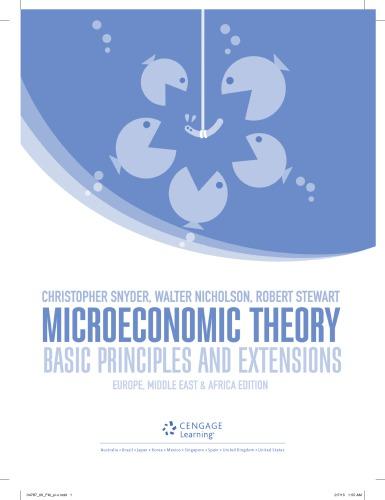8.12 refinements of perfect Bayesian equilibrium Recall the job-market signalling game in Example 8.9. a. Find the
Question:
8.12 refinements of perfect Bayesian equilibrium Recall the job-market signalling game in Example 8.9.
a.
Find the conditions under which there is a pooling equilibrium where both types of worker choose not to obtain an education (NE) and where the irm offers an uneducated worker a job. Be sure to specify beliefs as well as strategies.
b.
Find the conditions under which there is a pooling equilibrium where both types of worker choose not to obtain an education (NE ) and where the irm does not offer an uneducated worker a job. What is the lowest posterior belief that the worker is low-skilled conditional on obtaining an education consistent with this pooling equilibrium? Why is it more natural to think that a low-skilled worker would never deviate to E and thus an educated worker must be high-skilled? Cho and Kreps’s intuitive criterion is one of a series of complicated reinements of perfect Bayesian equilibrium that rule out equilibria based on unreasonable posterior beliefs as identiied in this part; see I. K. Cho and D. M. Kreps, ‘Signalling Games and Stable Equilibria’, Quarterly Journal of Economics, 102 (1987): 179–221.
Step by Step Answer:

Microeconomic Theory Basic Principles And Extensions
ISBN: 9781473729483
1st Edition
Authors: Christopher M Snyder, Walter Nicholson, Robert B Stewart






